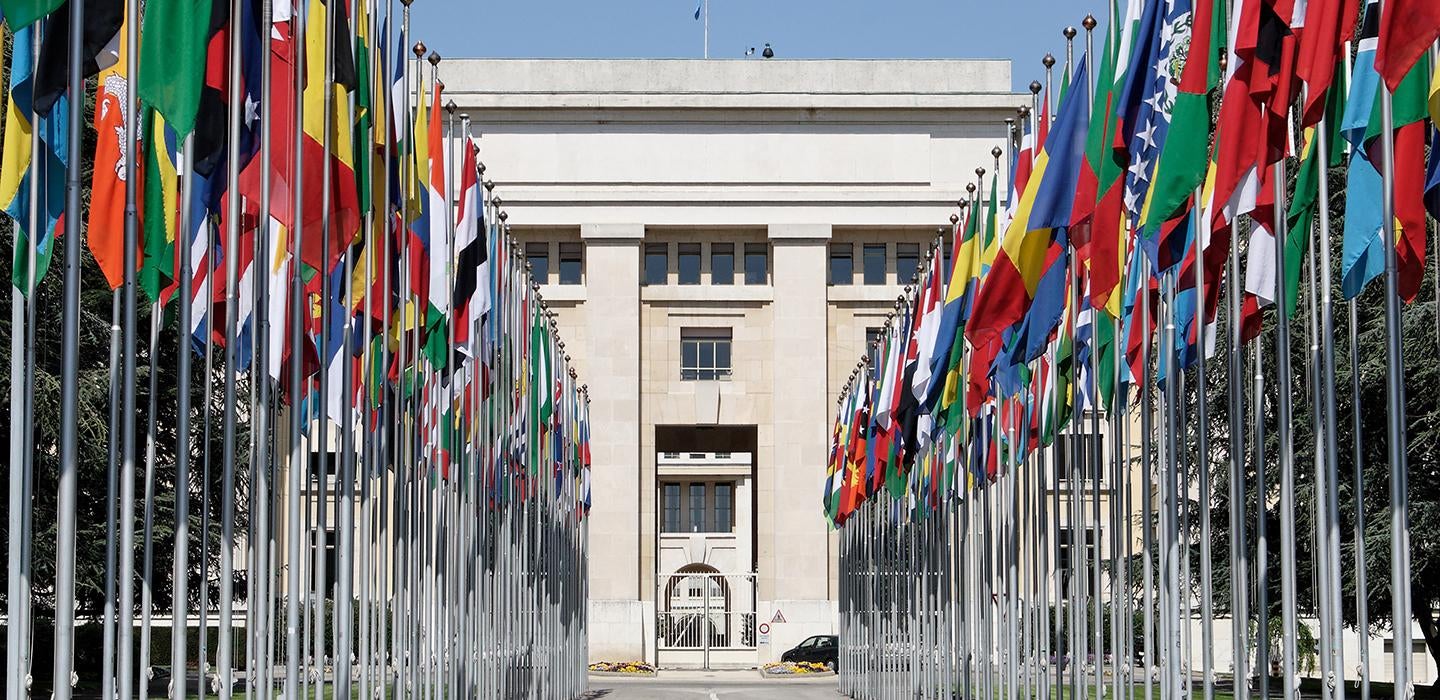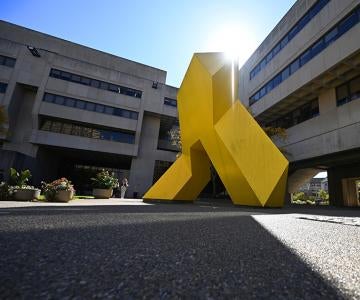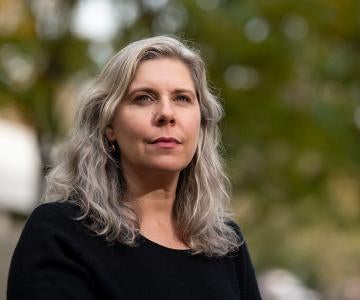
Subscribe to Pittwire Today
Get the most interesting and important stories from the University of Pittsburgh.Russia’s invasion of Ukraine isn’t just a geopolitical matter — it’s a legal one.
That’s why a coalition from Pitt’s School of Law has launched the Ukrainian Legal Assistance Project and is bringing Ukrainian lawyers to Pittsburgh to help.
“There's a web of interrelated laws, treaties and courts that will hold Russia accountable for its actions in Ukraine,” said Charles Kotuby (A&S ’97, LAW ’01), executive director of Pitt’s Center for International Legal Education (CILE), which houses the project. “The process of rebuilding Ukraine is going to be an enormous undertaking and international law has a big role to play in that process.”
In legal circles, the strategy is called lawfare, and it employs global sanctions, asset seizures and international claims tribunals to ensure that Russia faces ramifications for its aggression beyond the battlefield.
This August, three Ukrainian lawyers sponsored by CILE are planning to enroll in the School of Law’s Master of Laws (LLM) program, an advanced degree program focusing on international practice. These students will be assisted by global law firms, nongovernmental organizations and academic peers to provide advocacy and assistance regarding the legal issues arising from the war in Ukraine. The goal, Kotuby said, is to help them escape the war and become future leaders in the process.
Ana Vnukova, 27, of Kyiv, is one of the new project’s fellows. She said that rebuilding Ukraine is a personal responsibility, and she plans to use her LLM degree to help bolster her country’s economy. She anticipates Ukraine becoming a European Union member state post-war, which would require her country to adhere to strict intellectual property regulations as part of its membership.
Vnukova currently serves as intellectual property legal counsel for Nova Poshta Global, a Ukraine-based shipping company, and she plans to deepen her knowledge of data protection law while at Pitt.
“I want to protect the inventions and technological innovations sure to come out after Ukraine rebuilds, and I want to protect our know-how,” she said.
The Ukrainian Legal Assistance Project’s reach extends beyond the courts and the classroom: The initiative is also supporting Ukrainian law student reporters’ dispatches from the war in the publication JURIST. Headquartered at Pitt’s School of Law and managed by Professor Bernard Hibbitts, the online legal news service is powered by a global team of law students devoted to publishing judicial decisions, testimony and commentary.
JURIST’s writers are trained in reporting skills, how to perform fact-based assessments of complex situations and how to disseminate their findings to the broader world, said Kotuby. The Ukrainian Legal Assistance Project’s fellows will also have a hand in supporting their reporters from back home.
If you’d like to help, the Ukrainian Legal Assistance Project is looking for volunteers who can provide pro bono legal work on legal claims that Ukrainian individuals and entities may have in connection with the Russian Invasion. Email charles.kotuby [at] pitt.edu for more information. The project is also accepting monetary donations to offset the cost of Ukrainian law fellows’ travel and living stipends.
“It’s critical that the global bar, legal academy and world community come together at this moment to assist Ukraine,” Kotuby said.
— Nichole Faina





